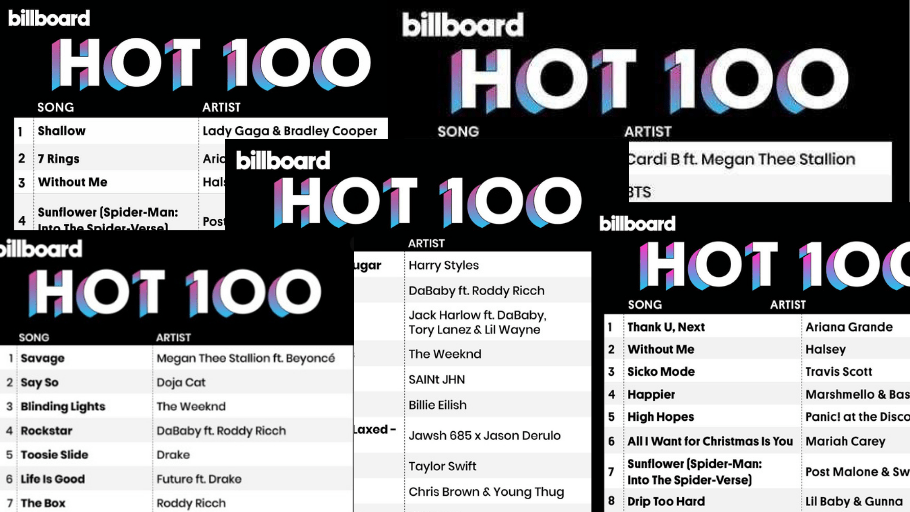Is streaming killing the music charts?
Over 130 million people have a Spotify Premium subscription. This nation of streamers is not only evidence for how important music is, it shows how blatantly commodified it has become. Yes, music has always been a commodity; a good to be traded and enjoyed. Yet, in 2020, it is arguably too easily accessible and, as a consequence, it’s harder to separate music that has a genuine cultural impact, from the music that is merely successful because of streaming parties and overeager stans.
Streaming is making music charts redundant. The main singles chart in the US, the Billboard Hot 100, is the perfect template for this argument. As anyone who wasn’t living under a rock will recall, 2018 saw the release of Ariana Grande’s wildly popular album, Thank U, Next, and brought the songstress the success she had always craved. Yes, the album as a whole was culturally significant, but only a small number of the tracks held the same weight.
Streaming also makes it easier to cheat the charting system
If I were to ask you your opinions on ‘Fake Smile’, ‘In My Head’, or ‘Bad Idea’, three album cuts from Thank U, Next, you’d have trouble giving a good response unless you were an avid Ariana fan. Despite this, all three of these songs, along with the other album cuts, appeared on the Billboard Hot 100 with only one charting below the top 40. These songs aren’t hits and their appearance on the most revered chart in America is often the very hard, yet unfair, work of a singular fanbase. Their appearance on the chart only makes it difficult to separate genuine hits, like ‘7 Rings’, from songs like ‘In My Head’ that happened to be streamed a vast amount of times over a short period.
Streaming songs is naturally so much easier than buying them for 99p, as we once did ten years ago, or walking into your local HMV (of which there aren’t many) and buying a CD. However, streaming also makes it easier to cheat the charting system. This method of music listening, and its undeniable convenience, resulted in the birth of ‘streaming parties’: a set time in the day in which the fans of a particular artist will come together to stream a new single or album, often playing it on multiple devices at the same time. For a stream to count towards the chart, a song only needs to be played for 30 seconds, and so these parties often involved restarting the song every half a minute. Is it an honest form of supporting your favourite singer or rapper? Not at all. Is it effective though? Unbelievably so.
New talent will never get the same exposure that charts once offered them, as positions become clogged up with more established talent with bigger fanbases
Here in the UK, steps have been taken to crack down on the damage that streaming is having on the UK Top 40. In 2017, the Official Charts Company introduced new rules limiting the number of songs an artist could have on the chart at one time. These rules were introduced in retaliation to the horror that Ed Sheeran’s ÷ album caused when all 16 of its tracks occupied spots in the top 20. However, the amendment of the rules hasn’t been entirely effective as, last Christmas, LadBaby’s horrendous charity single, ‘I Love Sausage Rolls’, scored the Christmas number one spot. Yes, we all love doing a bit for charity, but there is no force in this world that could convince me that genuine sales contributed to LadBaby’s chart dominance.
Unfortunately, it’s not only the pandemic that’s global; the threat that streaming poses to the charts is also a worldwide issue, and the sad thing is that, realistically, there’s nothing that can be done to make the charts fair again. New talent will never get the same exposure that charts once offered them, as positions become clogged up with more established talent with bigger fanbases. We may never know if a number one song truly is a number one song, or just a by-product of irrelevant and tactical streams.

Comments